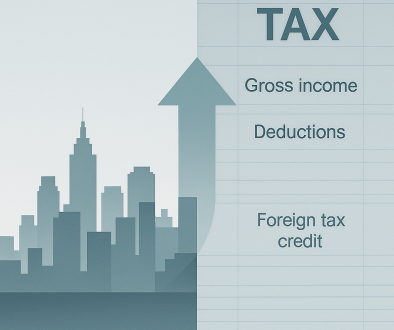Hungary Golden Visa 2025: Secure a 10-Year EU Residency Through Investment
Hungary encourages non-EU investors to bring capital into the country through the Hungary Golden Visa (Guest Investor) Program, which grants long-term residence permits based on investment. With the regulation that came into effect on July 1, 2024, applicants who make specific types of investments are eligible for a 10-year residence permit. The legal framework and residency regime of the program are shaped by Hungarian Immigration and Foreigners Law, the regulations of the Hungarian National Bank, and other relevant legal provisions.
The Golden Visa, like other CBI and RBI programs, offers more than just a residence permit; it provides broad rights, including free movement within the Schengen area, the ability to establish a business in Hungary, acquire real estate, and reside long-term in the country. However, investors must also comply with several legal obligations, such as maintaining their investment for a certain period, reporting the source of their funds, and meeting minimum residence requirements in Hungary.
I. Overview of the Hungary Golden Visa Program
The Golden Visa program is regulated under Hungarian immigration laws and is managed by the Hungarian Ministry of Interior and the General Directorate of Immigration and Nationality (OIF – Országos Idegenrendészeti Főigazgatóság). These authorities oversee application assessments, investment verification, and residence permit processes.
Hungary’s investment-based residence permit system is structured to align with EU law but is a nationally regulated framework. While the Golden Visa program does not directly grant rights under EU law, it offers significant benefits such as unrestricted travel within the Schengen zone.
Golden Visa holders are entitled to a 10-year residence permit in Hungary, which can also include family members. The permits are also subject to a further 10-year renewal period, which potentially provides residence for up to 20 years to investors, provided that the requirements are met. Spouses and children under the age of 18 can apply for residence permits together with the main applicant, while additional procedures are required for children over 18.
To qualify for the Golden Visa program, investors must meet specific criteria. The applicant must not be a citizen of the European Union or the European Economic Area (EEA), must be at least 18 years old, and must make an investment recognized by the Hungarian government. Additionally, the investor must have a clean criminal record, pose no security risk, and provide documents proving the legal source of their funds.
II. Types of Investments Eligible for the Golden Visa
To obtain a residence permit under the Hungary Golden Visa program, investors must choose from one of the designated investment options. The two primary investment types are:
- Real Estate Fund Investment
- Donation to Educational or Cultural Institutions
When selecting the most suitable investment option, investors should consider legal obligations, tax advantages, return on investment, and the long-term benefits provided by the program.
2.1. Hungary Golden Visa Real Estate Fund Investment – €250,000
One of the investment options approved by the Hungarian government is investing in real estate funds. This option requires investors to contribute at least €250,000 into an investment fund regulated and approved by the Hungarian National Bank. These funds invest in commercial and residential projects in Hungary and are regularly audited.
Key legal aspects of real estate fund investments include:
- The fund must be approved by the Hungarian National Bank.
- The investment must be maintained within the fund for a minimum of five years.
- Investors should thoroughly examine the fund’s management policies, risk profile, and liquidity terms.
- The sale or transfer of fund shares may be subject to restrictions, making it essential to review contractual terms in detail and obtain notarial certification.
This investment option provides a flexible alternative for investors who prefer not to purchase real estate directly but still wish to invest in Hungary’s real estate market. However, factors such as fund management fees and return guarantees should be carefully assessed.
2.3. Donation to Educational or Cultural Institutions – €1,000,000
The third investment option under the Hungary Golden Visa program is making a donation to educational or cultural institutions. Investors must donate at least €1,000,000 to a government-approved educational or cultural institution in Hungary.
This method allows for a faster application process compared to other investment types. However, as it is a donation, there is no return on investment, making it suitable only for those willing to contribute funds without expecting financial benefits.
2.4. Comparison of Investment Options
Each investment option comes with distinct advantages and obligations. The table below compares the three main Golden Visa investment types in terms of legal, financial, and administrative aspects:
| Investment Type | Minimum Investment (€) | Permit Duration | Economic Return | Sale/Withdrawal Restrictions | Application Process |
|---|---|---|---|---|---|
| Real Estate Investment Fund | 250,000 | 10 years | Depends on fund return | 5-year mandatory holding | Lengthy (Fund selection, notarization required) |
| Educational/Cultural Donation | 1,000,000 | 10 years | None | No return on investment | Short (Approval process is fast) |
III. Residence Permit Application Process
Individuals investing under the Golden Visa program are entitled to apply for a residence permit upon completing their investment. This permit is valid for 10 years. The application process is overseen by the Hungarian Immigration and Nationality Directorate, and applications must be submitted with all required documents.
The residence permit application consists of three main stages: (i) obtaining a Guest Investor Visa from a Hungarian consulate, (ii) entering Hungary and completing the investment, and (iii) submitting proof of the completed investment along with the residence permit application. To ensure a successful outcome, all documents must be submitted in full compliance with legal procedures.
For approval, applicants must provide comprehensive documentation proving that their investment has been properly completed. The residence permit application requires a valid passport, official investment documents, proof of financial sufficiency, and a health insurance policy.
Once the residence permit is granted, investors must adhere to specific obligations. The investment must be maintained for at least five years, and the investor must visit Hungary at least once per year. Transferring or canceling the investment before this period expires may lead to the revocation of the residence permit.
IV. Inclusion of Family Members
The Golden Visa investment extends to qualifying family members. Spouses and children under 18 can apply together with the main applicant. However, separate applications are required for children over 18 and other relatives under the family reunification framework.
To obtain residence permits for family members, the primary investor must fully meet all investment obligations and demonstrate financial stability. Additionally, proof of dependency and financial support documents must be submitted during the application process.
V. Challenges Encountered in Practice
The most common issues faced by investors stem from legal obstacles encountered during the investment process, administrative delays in residence permit applications, and additional procedures required for family members during the application process. Being aware of these challenges in advance and taking the necessary precautions to ensure that applications are submitted accurately and completely will facilitate a more efficient application process.
5.1. Challenges in the Investment Process
For individuals investing in real estate funds, the fund must be approved by the Hungarian Central Bank. Investors should carefully examine the structure of the fund, liquidity conditions, and expected investment returns before proceeding with their investment. In fund investments, it is crucial for investors to fully understand the terms of agreements they enter into with fund managers and to clearly assess the exit conditions.
5.2. Administrative Delays in Residence Permit Applications
In residence permit applications, the evaluation process carried out by the Hungarian Immigration and Nationality Directorate may exceed standard processing times. Particularly, if the documents submitted by investors are incomplete or incorrect, the evaluation period may be extended, and applications may be rejected.
It is of utmost importance for applicants to submit their documents accurately and in full to expedite the evaluation process. Hungarian authorities thoroughly review documents proving the investor’s financial capacity and the completion of the investment, as well as assess the investor’s criminal record and international security status.
VI. Conclusion
The Hungarian Golden Visa Program is a prestigious scheme that offers investors long-term residency, free movement within the Schengen area, and opportunities for investment in Europe. While providing flexibility through different investment options such as participation in investment funds or donations to educational/cultural institutions, each investment type entails distinct legal, administrative, and financial obligations.
The advantages of the Golden Visa Program extend beyond the investor, granting long-term residency rights to their spouse and children under the age of 18. However, family reunification may involve special procedures and additional documentation, particularly for children over 18, who are subject to specific assessments.
Regarding the application process and obligations following the issuance of a residence permit, it is crucial for investors to anticipate potential legal and administrative hurdles and ensure that all required documents are submitted in full throughout the process. Those opting for fund investments should conduct a thorough analysis of the fund’s liquidity conditions and expected returns while planning their exit strategy in advance. For investors choosing the donation option, the irreversible nature of this investment method necessitates careful consideration of its long-term implications.





